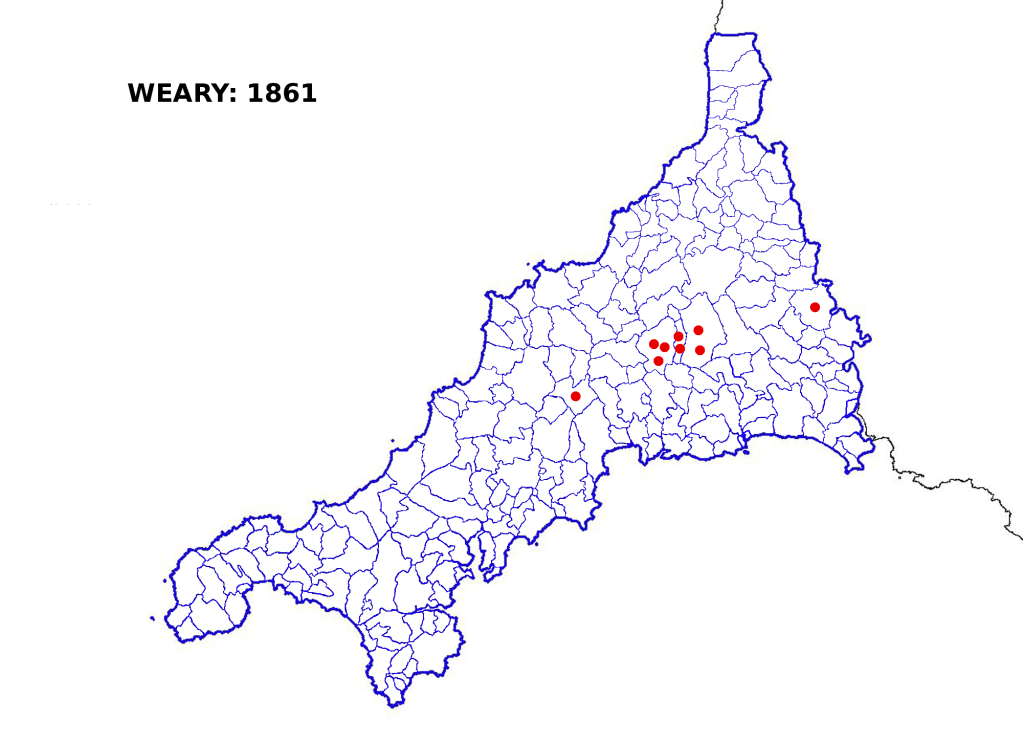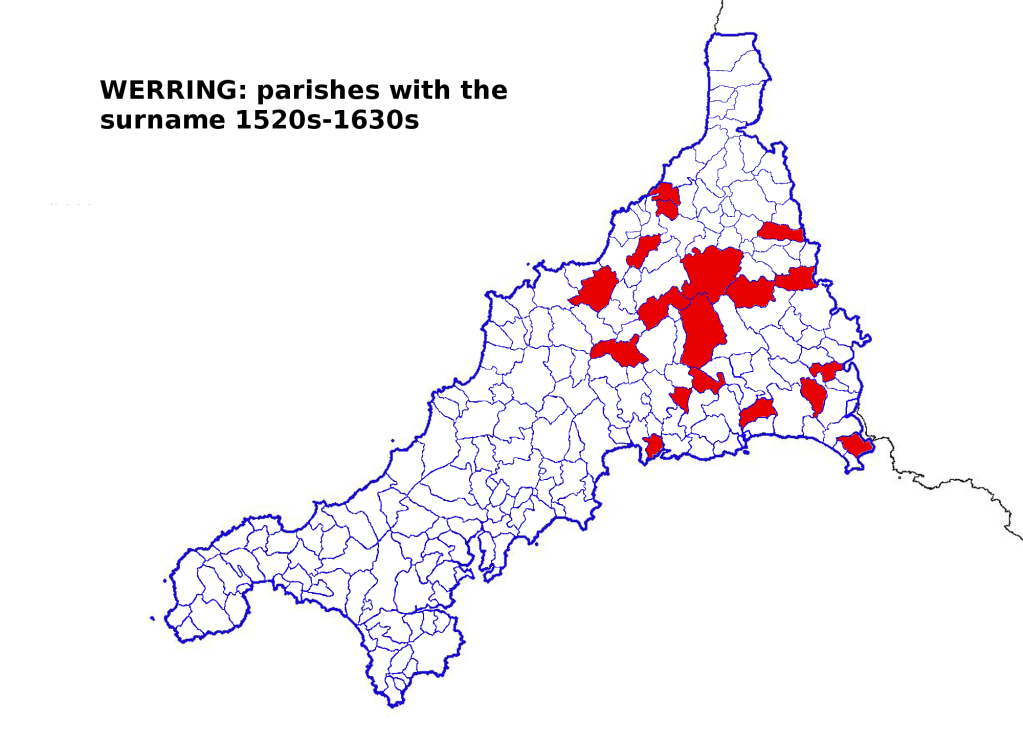To explain the origin of the following three surnames we have to negotiate various spelling changes over the centuries.
In the 1500s we find no-one called Weary until Richard Weary was baptised at St Pinnock, near Liskeard, in 1598. On the other hand, there were many Werrys. As the surname Weary appeared in broadly the same districts as Werry we can safely conclude it was a spelling variant of that name. I have discussed Werry/Wherry in my book on surnames, where I tentatively follow Morton Nance’s suggestion of an origin in a previously unknown saint’s name. Whereas Wherry and Werry came to be centred on mid-Cornwall, the Weary variant tended to be found further east.

Werring is not so common nowadays. It was found principally in south-east Cornwall in the nineteenth century. But in the 1500s it was spread over a somewhat wider zone, but all significantly found in English-speaking east Cornwall. The addition of <ng> to a name ending in <yn> or <in> was common in the English language at that time. Werring came via Weryn from Waryn, a medieval first name popular among the Normans, also probably the origin of Warne.

Our third surname – Whinnen – is more difficult. In 1543 there were two examples of Wynyan, at St Just in Roseland and at Cury on the Lizard. By the 1600s the name, as Wynnan, Wannen or Winnan, had settled down mainly on Breage and neighbouring parishes. The <h> was introduced first at Gwinear in 1766. By 1861 spellings with <wh> vied with those with just <w> in equal numbers. By that time Whinnens were found mainly at Camborne and Hayle, whereas the spelling Winnan was more scattered. The name looks Cornish but what does it mean? It could be from a name Wynyan – there is a Winnianton in Gunwallow, not far from Cury. It’s most likely to stem from that place without its (English) additional <-ton>. Or is there a connection with the Cornish word gwin or gwyn (white), suggesting a nickname?

I grew up knowing a wonderful Wherry in Warleggan. He has long since passed away, but a most delightful man. I remember him talking to me, on a blazing spring day, about how lovely the violets and celendines in the hedge were. I was amazed when he died just three or so weeks later, such a vibrant man.
In our graveyard there are several Wherrys and Wearys and I too thought the names were basically the same. And perhaps we see the spelling shift on the gravestones – i.e. in our parish is this one family being represented over generations (who became weary of being Weary and deliberately changed the name), or is it distinctive families who even without realizing it bore the ‘same name’? There is quite a difference in pronunciation.
It is interesting to consider whether Wherry had any connection to the river vessel. I presume not if you think it is a truly Cornish name based on an unknown saint (which still begs other questions around the meaning of the name). It is just that both words are so recognizably English.
LikeLike
Some thing Werry came from Prussian Warric, War King. I feel that mutations in Cornish, Scots Gaelic, Scots where ‘wh’ is pronounced as a ‘f’ at times may tie the name to ferry and the water taxi wherry. With Cornish losing a continuity as a spoken language, we may never know.
LikeLike